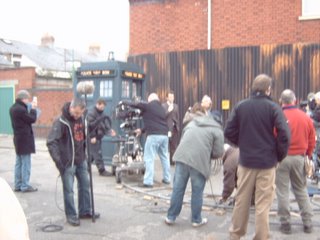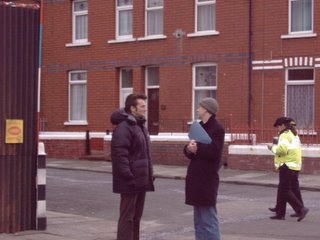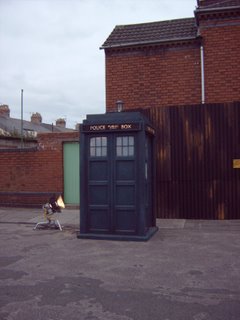Intelligent Design for Dummies
Science, religion and politics have collided in an explosive mix in America recently with the controversy surrounding Intelligent Design. Recently, a US federal judge ruled against teaching the idea in schools, deciding that it is religion rather than science. However, with support from George W Bush and an active religious lobby, the theory does not look like it is about to die out any time soon.
The heat and fury surrounding the debate doesn’t help rational and objective assessment of the arguments. Hopefully this quick guide will help you decide: Intelligent Design or unintelligent drivel?
What is Intelligent Design?
The Intelligent Design (ID) theory is that some things in nature are best explained by the intervention of a creative agent rather than just by chance and natural processes. Most of those advocating ID are Christians (though many Christians disagree with ID), and have God in mind when they talk about an “intelligent designer”.
Is it science?
One argument levelled against ID is that it can’t be science because it isn’t naturalistic. A supernatural designer is by definition outside the bounds of science, which only deals with the natural world, with the physical universe and its immutable laws. ID cannot be science, the argument goes, because it is not naturalistic.
On the other hand the ID movement says that there is no reason why the supernatural cannot in principle be investigated by science as long as it’s possible to empirically test and measure it, and to form and test falsifiable hypotheses, which is precisely what ID theory attempts to do. It’s just philosophical bias to rule out anything outside the normal workings of nature before you’ve even looked at the evidence.
Is there any evidence?
The argument for ID hinges on being able to detect design in nature, and naturally enough, its supporters think they have found such evidence, and naturally enough, its critics disagree.
The first feature of design that ID theorists point to is that of Irreducible complexity. This is the idea that some biological structures can only work if all the pieces are there – if just one thing hadn’t developed yet, then it wouldn’t work at all, in the same way that a mousetrap needs all the pieces to be there to be of any use.
ID theorists such as Dr Michael Behe argue that it isn’t just improbable that such structures could arise just by gradual chance changes filtered through natural selection, but is in principle physically impossible. The ID movement has identified various structures that it claims are irreducibly complex.
The second argument is that of Specified complexity. ID proponent William Dembski proposes a three-part “explanatory filter” for deciding what is the minimum required to explain something – chance (random processes), law (regular predictable processes such as the laws of nature) and design. Imagine picking Scrabble letters at random. Simple order could arise by chance (e.g. short words like “it” and “can”) and regular patterns by law-like processes (e.g. “design, design, design”). But irregular patterns, such as Hamlet, show specified complexity, and, the argument goes, can only be explained by design. DNA is almost literally the computer programming language of the cell, and like a language, the sequences of chemicals which mean different things are arbitrary. The language of the cell and the instructions for life in DNA are just as complex as the works of Shakespeare. According to ID, the complexity of life requires the involvement of a designer.
Over 500 scientists have now signed a statement that they are “skeptical of claims for the ability of random mutation and natural selection to account for the complexity of life”. However, this is still a very small minority, and many of these are from other scientific disciplines than those relating to ID.
Education or indoctrination?
The fiercest controversy surrounding ID was provoked by moves in parts of America for it to be introduced as an alternative theory alongside evolution in schools. Critics saw this as an attempt to smuggle religion into the classroom, in violation of the separation of church and state, and the courts in different states in the US have agreed.
Many in the ID movement see the science of Darwinism (which is accepted by the vast majority of scientists) as one and the same as the philosophy of Darwinism (the aggressively atheistic worldview of the likes of Richard Dawkins). As such, the ID movement argues that religion is already in the science classroom, because they see teaching evolution, and teaching a naturalistic view of science, as promoting atheism.
However, both many scientists and many theologians alike argue that the philosophical conclusions that some atheists draw from the science of evolution do not necessarily follow.. Many people of many different beliefs accept evolution while rejecting atheism and secularism, and disagree with the ID movement and with evangelical atheists who see this as inconsistent.
The ID movement argues that it is dogmatic and closed-minded not to allow different theories to be taught in schools, while critics say it’s like teaching 2+2=5 to bring diversity into the Maths class, or like denying the Holocaust in History, which brings us right back to the question of whether ID is scientifically valid.
So there you have it – a quick guide to the basic arguments surrounding Intelligent Design. Despite some defeats in the US courts, the ID movement in America is committed to continue arguing their case. Here in the UK, the Government is set to promote independent City Academies, some of which already teach Creationism as well as evolution. The debate looks set to continue.
I hope that the article is a fair summary of the arguments. My aim was to write an information piece telling people what the controversy is about so people can have a better basis for forming an opinion than the “George W Bush looks like a monkey so evolution must be true!” level of argument that has popped up in the student paper before. Hopefully I’ll get round sometime soon to giving my current thinking on the whole issues of creation and evolution, Genesis and design.













